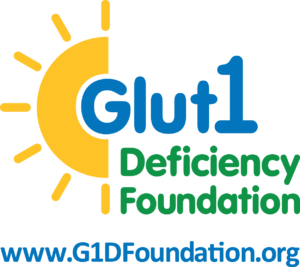What is GLUT1 Enzyme Deficiency Syndrome?
GLUT1 Enzyme Deficiency Syndrome is in large part a reason why, over the course of the last 18 years, my darling kiddo has had some of his mental health and cognitive challenges. I wonder how rare it really is?
What Does This Mean?
GLUT1 (glucose transporter type 1) deficiency syndrome, also known as GLUT1 DS or De Vivo disease, is a rare genetic disorder that affects the transportation of glucose into the brain. Glucose is the primary energy source for the brain, and its transportation across the blood-brain barrier is facilitated by the GLUT1 protein.
In individuals with GLUT1 deficiency syndrome, there is a mutation in the SLC2A1 gene, which provides instructions for making the GLUT1 protein. This mutation leads to a reduced number or dysfunction of GLUT1 transporters, impairing the brain’s ability to receive an adequate supply of glucose.
After completing a DNA test (one that covered SNPS beyond methylation) with the now long-gone Courtegen Laboratories sometime in I think 2015, it was noted the SLC2A1 gene may be somewhat explanatory for some of what was going on. However, it wasn’t until 2017 or 2018, when another neurologist was reviewing testing and asked us why we never considered the SLC2A1 gene information, I was confused. I had no idea what it even was (I quickly found out) and suddenly realized we had spent an additional 3 or so years floundering unnecessarily.
It still makes me sad to realize this huge red flag was waving and no one really focused any attention on it. We always knew there was seizure activity, every EEG showed it, but no one ever really thought it had anything to do with what was going on with him. We had a diagnosis of complex partial seizures and temporal lobe epilepsy but it was just one more line item on the ever-growing list of diagnoses we had started collecting umpteen years ago. I now realize how negligent that thinking was.
Symptoms
The primary symptoms of GLUT1 deficiency syndrome typically manifest in early infancy or childhood and may vary in severity among affected individuals. Some common symptoms include:
- Developmental delay: Children with GLUT1 DS may experience delays in reaching developmental milestones, such as sitting, walking, and talking. Check, check, check
- Movement disorders: A variety of movement disorders can be observed, including ataxia (uncoordinated movements), dystonia (involuntary muscle contractions), chorea (involuntary jerky movements), and spasticity (muscle stiffness). check check
- Seizures: Seizures are a prominent feature of GLUT1 DS, usually starting in infancy or early childhood. These seizures can be resistant to standard anti-epileptic medications. check
- Cognitive impairment: GLUT1 DS may cause intellectual disability or learning difficulties. Some individuals may have normal intelligence, while others may experience significant cognitive impairment. check (highly intelligent, but processing is difficult)
- Microcephaly: Some individuals with GLUT1 DS may have a smaller head size than normal due to reduced brain growth. (no)
- Other symptoms: Additional features may include speech difficulties, behavior abnormalities, sleep disturbances, and a variety of neurological symptoms. My son suffers from muscle pain and weakness, muscle cramps, and dysautonomia amongst of things.
The diagnosis of GLUT1 deficiency syndrome is typically confirmed through genetic testing to identify mutations in the SLC2A1 gene. We also completed a lumbar puncture. The LP is to analyze cerebrospinal fluid for low glucose and other metabolic abnormalities and helped support the diagnosis. While his numbers were not drastically low, they were under the reference range and qualified GLUT1 as a diagnosis.
What treats GLUT1?
The primary treatment for GLUT1 DS is a ketogenic diet, which is high in fats and low in carbohydrates. The ketogenic diet provides an alternative fuel source for the brain in the form of ketones. Ketones can be used by the brain as an energy source, bypassing the need for glucose transport via GLUT1. The keto diet has been shown to alleviate symptoms in many affected individuals. However, because we didn’t get to this diagnosis until he was over 16, it has proven impossible to stay keto. Initially, during treatments at Lyme Laser Clinics it was all keto and both showed remarkable improvement. When we got the GLUT1 diagnosis, he did briefly try again, but it didn’t last. Overall, he simply refuses to follow any diet that doesn’t involve sugar. This child is addicted to sugar.
GLUT1 deficiency syndrome is a lifelong condition, but with early diagnosis (which we didn’t have the luxury of) and appropriate management, individuals can lead relatively normal lives. Regular medical follow-up, including monitoring developmental progress, seizure control, and nutritional status, is important for optimal management of the condition. We have no one following us for the diagnosis and honestly, no one really seems interested in the seizures or GLUT1 as part of his recovery, not even him.
We will go on, sneaking in MCT oil where we can and cooking optimal fatty foods even though he always insists on bread, pasta, and rice to accompany it, which defeats the purpose entirely. Not sure where we go from here honestly. This journey is beyond confusing especially when we consider the mold, Lyme, Bartonella, trauma, encephalitis, mitochondrial disorder, positive folate antibody testing, low B12, low electrolytes, etc. etc. etc. I am not sure where it all ends and the next one begins.
Where can I find help and more information?
The Glut1 Deficiency Foundation is a great place to start. They have resources, data, and most of all support.
The Glut1 Deficiency Foundation is a nonprofit patient advocacy organization dedicated to improving lives in the Glut1 Deficiency community through our mission of
- increased awareness
- improved education
- advocacy for patients and families
- support and funding for research
